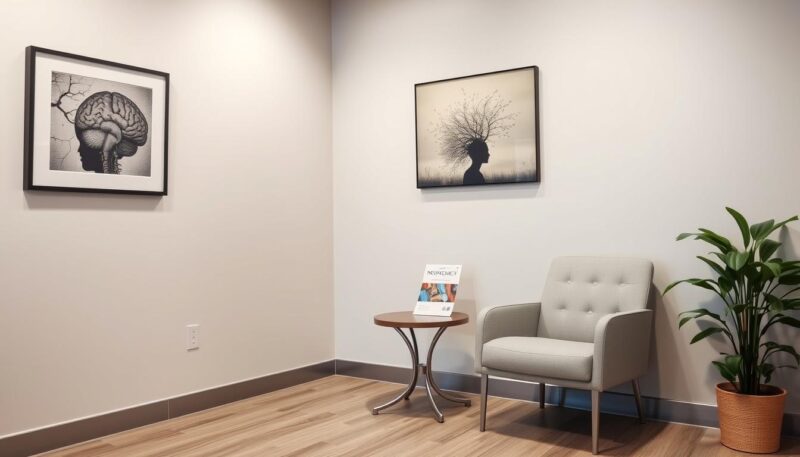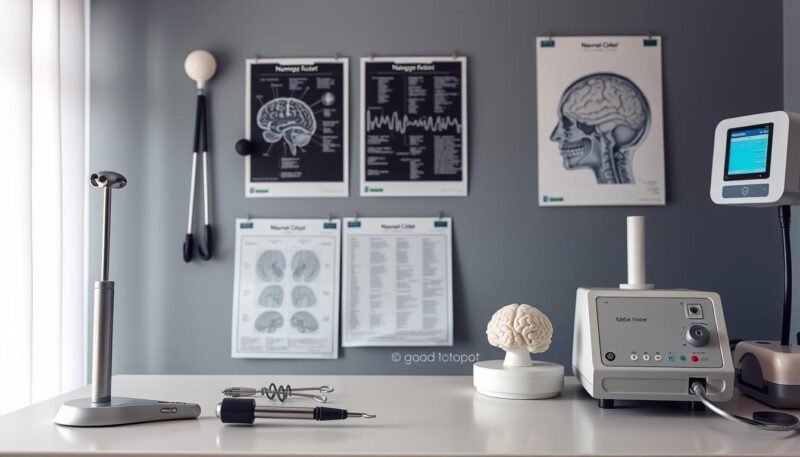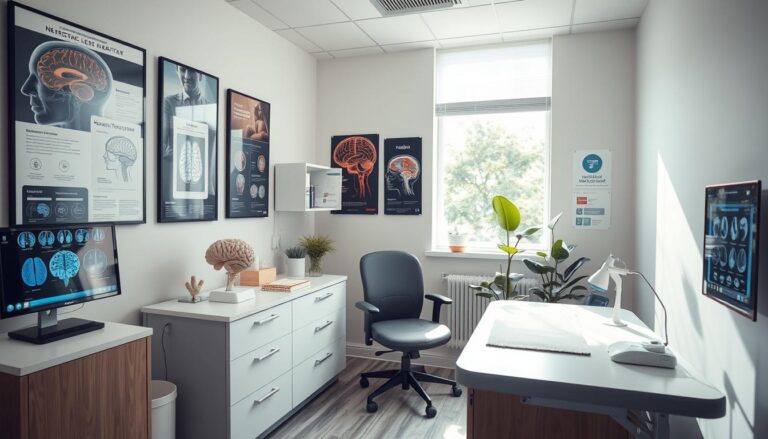Your first visit to a neurologist can be both reassuring and informative, as it marks the beginning of understanding and treating any neurological issues you might be experiencing. Neurologists are highly specialized doctors who diagnose and manage disorders of the brain, spinal cord, and peripheral nerves. With a wide array of expertise, they are trained to handle conditions such as epilepsy, multiple sclerosis, migraines, and more. Understanding what to expect during your initial consultation can help alleviate anxiety and ensure you are well-prepared for the visit.
Typically, your first neurologist appointment involves an extensive discussion about your medical history and symptoms. Neurologists undergo rigorous training, including four years of medical school, a mandatory year-long internship in internal medicine, and three years of residency in neurology. Moreover, about 33% of neurologists pursue an additional one to two years of fellowship training in subspecialties like epilepsy or peripheral neuropathy. This extensive training ensures that they are well-equipped to handle a variety of complex neurological conditions.
During your initial visit, be prepared to discuss any symptoms you’ve been experiencing, such as seizures, numbness, or memory problems. Your neurologist will likely ask detailed questions to better understand your condition. Bringing a list of your symptoms and previous medical records can be incredibly helpful in providing an accurate diagnosis. Neurological injuries account for roughly 40% of referrals to neurologists, emphasizing the importance of thorough evaluations in managing brain, spinal cord, and peripheral nerve conditions.
Additionally, it’s essential to note that imaging studies such as CT scans or MRIs are utilized in approximately 70% of neurological evaluations for issues like memory loss and cognitive dysfunction. These imaging tools are crucial in pinpointing the exact cause of your symptoms, leading to a more effective treatment plan. Moreover, a survey revealed that 23% of primary care physicians refer their patients to neurologists for frequent headaches or migraines, highlighting the commonality of these complaints in neurology.
As you prepare for your first neurologist appointment, remember that the consultation is designed to be comprehensive. The typical duration of a first visit ranges from one to two hours, depending on the complexity of your condition. This dedicated time allows the neurologist to perform detailed assessments, which may include neurological exams and various tests such as blood tests, CT scans, EEGs, lumbar punctures, MRIs, nerve conduction studies, and electromyography (EMG). All these tools collectively help in forming an accurate diagnosis and developing a personalized treatment plan.
Including a complete account of your symptoms, any previous treatments, and your family health history can significantly aid your neurologist in crafting an effective treatment strategy. Remember, neurological conditions are the leading cause of illness and disability globally, affecting one in three people, which translates to over three billion individuals. In the U.S. alone, an estimated 75 million people are grappling with neurological conditions, underscoring the vital role neurologists play in healthcare.
Your neurologist will ask numerous questions to gain a detailed understanding of your symptoms and medical history. Expect inquiries about the onset of your symptoms, their severity, and any factors that may exacerbate or alleviate them. This information is vital in forming a precise diagnosis. Understanding the neurological exam basics and being well-prepared can significantly enhance your overall experience and the effectiveness of your consultation.
What to Expect At a Neurologist Visit
The initial visit to a neurologist can be a pivotal step in diagnosing and managing various neurological disorders. Understanding a neurology check-up can help alleviate anxiety surrounding the appointment and can lead to better preparation, ultimately contributing to the effectiveness of the consultation.
Introduction to Neurology
Neurology is a specialized field of medicine that deals with disorders of the nervous system, which includes the brain, spinal cord, and peripheral nerves. Neurologists diagnose and manage over 100 different conditions, from common issues like headaches and migraines to more complex disorders such as Multiple Sclerosis and Parkinson’s disease. Approximately one in four adults in the United States will experience a neurological disorder at some point in their lives.
Role of a Neurologist
Your first visit to a neurologist typically involves a comprehensive examination to identify any neurological issues. Neurologists are often referred by primary care physicians for symptoms that have persisted for more than three months or for conditions that require specialized care. The average wait time for an appointment is around three to six weeks in urban areas, and the initial consultation usually lasts about 45-60 minutes.
What to expect at a neurologist visit includes various assessments covering muscle strength, reflexes, coordination, sensation, and mental function. Nearly 70% of consultations result in further diagnostic testing like MRIs or CT scans. Understanding a neurology check-up helps you prepare for these evaluations and possible follow-up treatments, such as activity modifications, medication, or referrals to support organizations.
Preparing for a Neurology Consultation
Before you visit a neurologist, it’s essential to be thoroughly prepared. Preparing for a neurology consultation involves gathering pertinent details, documenting your medical history, and compiling questions to ensure a productive visit. By taking these steps, you can significantly enhance the diagnostic process and facilitate a comprehensive evaluation.
Gathering Medical History
Collecting your medical history is a crucial step in preparing for a neurology consultation. Ensure you bring any relevant medical documentation and records, including past diagnoses, current and previous medication lists, and results from earlier tests. If you have a family medical history of neurological conditions, particularly related to walking or coordination issues, it’s essential to include this information. Tracking the top three symptoms you’re experiencing will aid the neurologist in understanding your condition better. Additionally, maintaining a symptom log can help track the progression of any neurological conditions, providing valuable data for your consultation.

Preparing Your Questions
To maximize your appointment time, prepare a list of questions beforehand. Focus on your primary concerns about symptoms, potential neurological diseases, and how these impact your daily life. For example, inquire about the nature of your symptoms, potential treatment options, and any necessary lifestyle adjustments. Prioritizing your questions ensures you cover the most critical issues during the consultation, given that doctors often spend only 1.3 minutes conveying crucial information about your condition and treatment options.
Documentation and Records
Accurately organizing your documentation and records is vital for a successful neurology consultation. Bring a detailed list of medications, including dosages and schedules. Understanding medication instructions is crucial, as many patients often forget important information given during visits. Also, complete any pre-appointment forms or questionnaires provided by the neurologist’s office. This step helps streamline the appointment process, especially considering that doctors must use electronic prescribing at least 25 times annually to avoid penalties from Medicare.
Ensuring you have all the necessary documentation and records can make a significant difference in the effectiveness of your neurological evaluation and management. Immediate scheduling of follow-up tests or therapies after the initial consultation is often advised based on the findings discussed during your visit.
What Does a Neurologist Do on Your First Visit
Your first visit to a neurologist marks a crucial step in addressing your neurological concerns. It involves an in-depth and structured approach to accurately diagnose and treat potential conditions.
Initial Assessment
The initial assessment begins with a detailed conversation about your symptoms, medical history, and any current medications. This discussion helps the neurologist understand the context and timeline of your health concerns, making it easier to pinpoint issues.
Neurological Exam Basics
The core of your visit includes a thorough neurological examination. This exam assesses various functions such as reflexes, muscle strength, coordination, sensation, and mental status. Understanding these neurological exam basics allows for a comprehensive overview of your neurological health.

Common Neurology Tests
Based on the initial assessment and neurological examination, the neurologist might recommend several common neurology tests. These could include:
- MRI scans
- CT scans
- EEGs (Electroencephalograms)
- Blood and urine tests
- Electromyograms (EMG)
- Evoked potentials tests
- Spinal tap or lumbar puncture
- Muscle or nerve biopsy
These tests are essential for identifying issues related to brain activity, structure, and function. They help determine the precise nature of any neurological disorder and are foundational in formulating an effective treatment plan.
Common Questions Neurologists Ask
When you visit a neurologist, expect to answer a series of detailed questions that help identify the nature and severity of your neurological symptoms. These questions neurologists ask are essential in forming a comprehensive understanding of your condition. Typically, they will ask about the onset, duration, and frequency of your symptoms. For example, if you experience headaches, they might inquire about the intensity, location, and any triggers or patterns you’ve noticed.
Neurologists might also explore how your neurological symptoms impact your daily activities. You may need to discuss whether symptoms like dizziness, muscle weakness, or tremors affect tasks such as walking, driving, or working. By understanding the specific ways in which your symptoms interfere with your life, the neurologist can better tailor their approach to treatment and management.
Expect questions regarding your medical history and family history as well. These questions help identify any genetic predispositions or past medical issues that might be relevant to your current condition. Questions about medications you’re currently taking are also crucial, as over 60% of patients often overlook providing this information, impacting the neurologist’s ability to diagnose efficiently.
Initial assessments are thorough, typically lasting 60-90 minutes, during which time the neurologist will also conduct various tests to evaluate critical markers such as reflexes, cognitive functions, and muscle coordination. For Parkinson’s disease patients, approximately 58% of whom visit a neurologist for their condition, these detailed questions can significantly reduce the risk of complications. For example, seeing a neurologist reduces the risk of hip fractures by 15% and decreases the likelihood of requiring nursing home care by 21%.
- How long have you been experiencing these symptoms?
- Can you describe the pain or discomfort?
- Have you noticed any patterns or triggers?
- Are there any activities that exacerbate your symptoms?
- Do you have a family history of neurological conditions?
Such detailed inquiries and thorough examinations mean that between 20-35% of first-time visits may lead to additional diagnostic tests such as MRIs or blood tests. Follow-up appointments, typically lasting 45-60 minutes, are scheduled to discuss these results and develop a tailored treatment plan. This systematic approach ensures continuity in care, with studies showing that up to 80% of patients with neurological conditions benefit from these personalized plans.
| Aspect | Statistic |
|---|---|
| Average duration of new patient consults | 60-90 minutes |
| Frequency of cognitive testing after initial evaluation | Twice a year |
| Follow-up appointment duration | 45-60 minutes |
| Interval between regular visits | 2-4 weeks |
| Patients with neurological symptoms experiencing wait times of 2-4 weeks | 60% |
| Percentage of patients who better understand their condition post-discussion | 90% |
| Patients who benefit from tailored treatment plans | 80% |
Understanding a Neurology Check-Up
A comprehensive neurology check-up is essential for evaluating the brain and nervous system’s overall health. Various components, including physical and verbal neurological exams and specific diagnostic tests, are incorporated to form a conclusive assessment.
Components of a Neurological Exam
During a neurological exam, several critical areas are evaluated:
- Motor and sensory skills
- Balance and coordination
- Mental status
- Reflexes
- Nerve functioning
This thorough assessment involves evaluating cranial nerves, which may include up to 12 different tests to ensure accurate brain function examination. Additionally, reflex testing often uses a reflex hammer to assess an estimated 6-8 reflex points on average during an adult exam. In infants, around 5-10 reflexes are typically assessed early in life, including the Moro and Babinski reflexes.
Interpretation of Test Results
Post-exam, the interpretation of test results is crucial for diagnosing conditions such as multiple sclerosis (MS), epilepsy, or neuropathy. Analysis during this interpretation focuses on cognitive functions, motor skills, sensory capabilities, and overall brain health. For example, mental status evaluation includes conversational assessments to gauge awareness, which shows a detection rate of cognitive impairment of up to 80% in initial neurological evaluations.
| Symptom | Prevalence in Patients |
|---|---|
| Headaches | Over 50% |
| Blurry Vision | Approximately 25% |
| Fatigue | Nearly 30% |
| Numbness/Tingling | About 15% |
| Weakness | Around 10% |
Follow-Up Actions
Based on the neurological exam components and the interpretation of test results, the neurologist will recommend follow-up actions. This could involve creating a treatment plan involving medications, lifestyle changes, or referrals to neurosurgical specialists for more complex conditions. Early identification of neurological issues can reduce complications by up to 40%, emphasizing the importance of timely and accurate follow-up actions.
Conclusion
Your first neurologist appointment is a comprehensive journey into understanding your neurological health. This initial visit is meticulously designed to gather critical information through a detailed discussion of your medical history, an array of physical examinations, and a variety of diagnostic tests. From the beginning stages of assessment to the intricate neurological exams, your neurologist aims to develop a precise plan of action tailored to your needs.
Preparing adequately for this visit is integral. Bringing detailed medical records and a list of questions can significantly influence the depth and accuracy of the diagnosis. Neurologists utilize various tests such as MRI, CT scans, EEGs, and nerve conduction studies to explore underlying symptoms and conditions thoroughly. This ensures that you receive a comprehensive diagnosis, setting the stage for effective treatment strategies and ongoing management of symptoms.
Understanding these processes can demystify your first neurologist appointment, enabling you to engage more actively in your health journey. Each step, from the initial evaluation to the detailed neurological exams—like the mini-mental state examination (MMSE) or sensory and reflex tests—provides a clearer picture of your condition and aids in forming the most beneficial plan of action for your neurological health. Staying informed and involved is key to managing your long-term well-being effectively.

